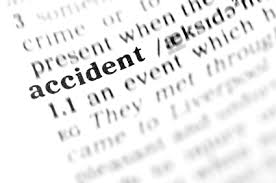When do I need to report an incident/accident?
For most types of incident, including:
- accidents resulting in the death of any person
- accidents resulting in specified injuries to workers
- non-fatal accidents requiring hospital treatment to non-workers and
- dangerous occurrences
the responsible person must notify the enforcing authority without delay, in accordance with the reporting procedure (Schedule 1). This is most easily done by reporting online.
Alternatively, for fatal accidents or accidents resulting in specified injuries to workers only, you can phone 0345 300 9923.
NB: A report must be received within 10 days of the incident.
Types of reportable incidents
Deaths and injuries
If someone has died or has been injured because of a work-related accident this may have to be reported. Not all accidents need to be reported, other than for certain gas incidents RIDDOR report is required only when:
- the accident is work related
- it results in an injury of a type which is reportable
Types of reportable injury
The death of any person
All deaths to workers and non-workers, with the exception of suicides, must be reported if they arise from a work-related accident, including an act of physical violence to a worker.
Specified injuries to workers
The list of ‘specified injuries’ in RIDDOR 2013 replaces the previous list of ‘major injuries’ in RIDDOR 1995. Specified injuries are (regulation 4):
- fractures, other than to fingers, thumbs and toes
- amputations
- any injury likely to lead to permanent loss of sight or reduction in sight
- any crush injury to the head or torso causing damage to the brain or internal organs
- serious burns (including scalding) which:
- covers more than 10% of the body
- causes significant damage to the eyes, respiratory system or other vital organs
- any scalping requiring hospital treatment
- any loss of consciousness caused by head injury or asphyxia
- any other injury arising from working in an enclosed space which:
- leads to hypothermia or heat-induced illness
- requires resuscitation or admittance to hospital for more than 24 hours
Over-seven-day incapacitation of a worker
Accidents must be reported where they result in an employee or self-employed person being away from work, or unable to perform their normal work duties, for more than seven consecutive days as the result of their injury. This seven day period does not include the day of the accident, but does include weekends and rest days. The report must be made within 15 days of the accident.
Over-three-day incapacitation
Accidents must be recorded, but not reported where they result in aworker being incapacitated for more than three consecutive days. If you are an employer, who must keep an accident book under the Social Security (Claims and Payments) Regulations 1979, that record will be enough.
Non fatal accidents to non-workers (eg members of the public)
Accidents to members of the public or others who are not at work must be reported if they result in an injury and the person is taken directly from the scene of the accident to hospital for treatment to that injury. Examinations and diagnostic tests do not constitute ‘treatment’ in such circumstances.
There is no need to report incidents where people are taken to hospital purely as a precaution when no injury is apparent.

